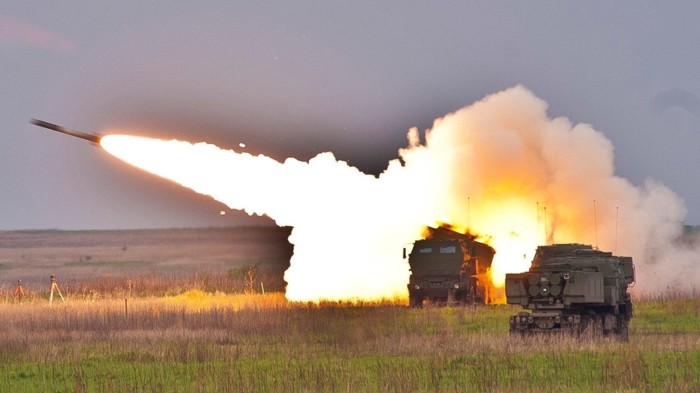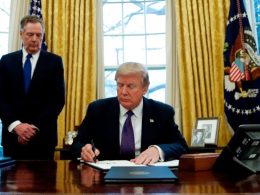Unlock the White House Watch newsletter for free
Your guide to what the 2024 US election means for Washington and the world
France has dropped its opposition to non-EU companies accessing EU-funded financial incentives for Europe’s defence industry, as Brussels pushes to develop a stronger domestic arms industry less dependent on the US.
French diplomats in Brussels have voiced support for a proposal that would allow for up to 35 per cent of EU budget-financed cash incentives to be spent on defence products from outside the 27-member bloc, according to five people briefed on technical discussions last week.
That follows around a year of opposition from Paris to allowing defence companies from countries such as the US, UK, Israel and Turkey from participating in the EU’s proposed European Defence Investment Plan (EDIP), on the grounds that it should only promote homegrown companies amid a push for European “strategic autonomy”.
But that position had shifted this month, two of the officials said, adding that it would be difficult for the EU to simultaneously lobby incoming US president Donald Trump not to reduce US military support to Europe, while excluding US companies from efforts to build up the European defence industry.
“Everyone is thinking a bit smarter since [the US election],” said one of the officials.
Countries such as Sweden that have strong links to the UK defence industry had been opposed to France’s previous position, arguing that it could exclude their defence contractors that had British shareholders or relied on UK-sourced components.
The 65/35 proposal was drawn up by the Hungarian rotating presidency of the EU and involved inputs from France, Germany, Italy and Spain, three of the officials said.
Negotiations on the proposal were set to take place in the coming weeks and it could change before it is presented to parliament in early 2025, they added.
The proposal also includes a clause banning the participation of countries deemed to “contravene” the bloc’s security and the principle of “good relations.”
France viewed the proposal as “a good basis” for compromise, another of the officials said.
The French representation to the EU declined to comment.
EDIP, which was first proposed last February and must be agreed by both the EU’s 27 capitals and the European parliament in order to come into force, would pump cash into joint production and procurement of European weapons.
The initiative seeks to stimulate investment in the continent’s underfunded arms industry and encourage capitals to buy weapons together, to promote interoperability and bring down prices.
The EDIP’s aims include increasing the “availability and supply” of key defence products and “addressing bottlenecks in critical supply chains” supporting the European arms industry, and involving Ukrainian manufacturers.
The project is only earmarked for a €1.5bn cash pot under the existing EU budget to 2027, but many capitals are pushing for it to grow significantly in the future. Officials also say that its spending rules would probably provide a long-term framework for similar EU defence initiatives.
A drive to increase European defence self-sufficiency began with Russia’s full-scale invasion of Ukraine, and is expected to only increase under Trump, who has vowed to end the generations-old US military protection to European countries who don’t spend enough on their own defence.
Even before Trump’s election, Brussels has been attempting to encourage better co-ordinated and more effective defence procurement as EU capitals increase national defence budgets. Many observers fear the US shifting its security focus away from Europe towards Asia.
Source link









